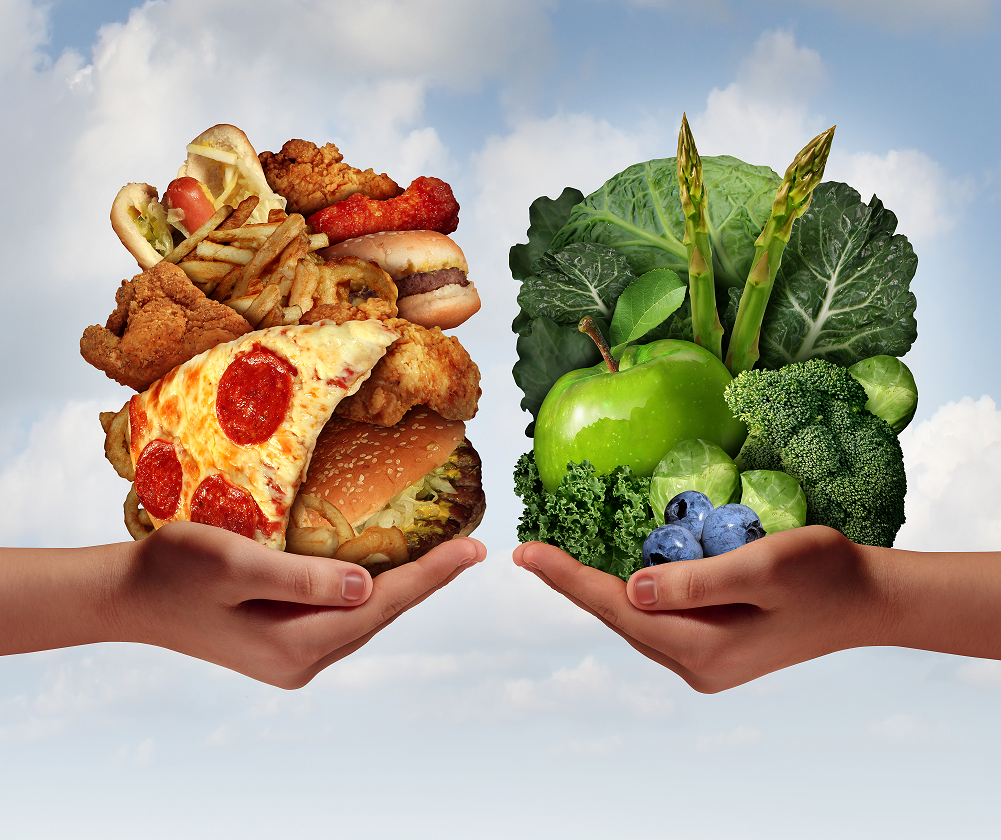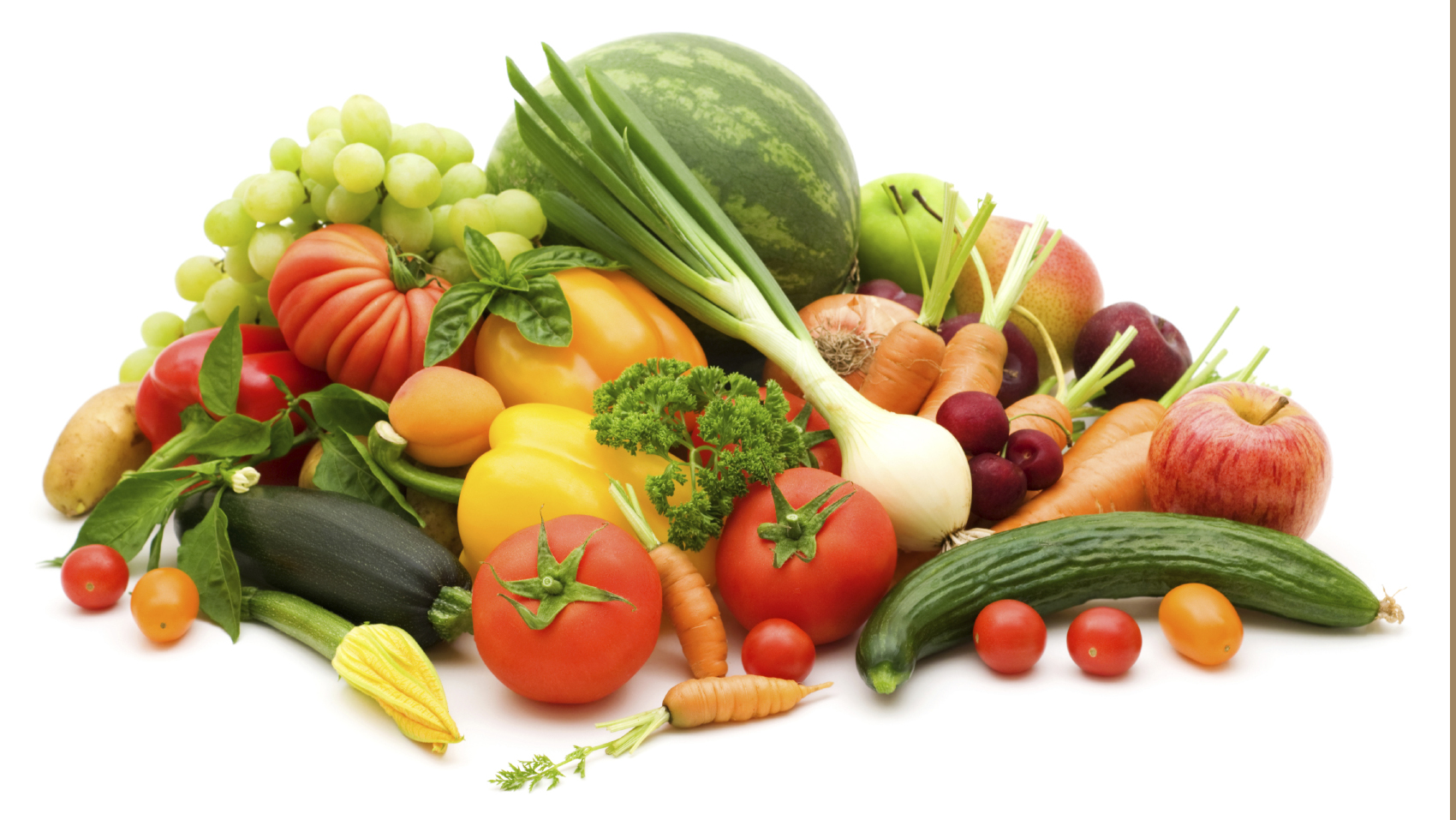Food plays a central role in our society but few people actually understand what it does to our bodies. Learn more about nutrition and how our diet profoundly impacts our current and future health.
Can what you eat affect your mental health?
New research links diet and the mind.
Research exploring the link between diet and mental health “is a very new field; the first papers only came out a few years ago,” said Michael Berk, a professor of psychiatry at the Deakin University School of Medicine in Australia. “But the results are unusually consistent, and they show a link between diet quality and mental health.”
“Diet quality” refers to the kinds of foods that people eat, how often they eat them and how much of them they eat. In several studies, including a 2011 analysis of more than 5,000
“Diet quality” refers to the kinds of foods that people eat, how often they eat them and how much of them they eat. In several studies, including a 2011 analysis of more than 5,000 Norwegians, Berk and his collaborators have found lower rates of depression, anxiety and bipolar disorder among those who consumed a traditional diet of meat and vegetables than among people who followed a modern Western diet heavy with processed and fast foods or even a health-food diet of tofu and salads.
“Traditional diets — the kinds of foods your grandmother would have recognized — have been associated with a lower risk of mental health issues,” Berk said. Interestingly, that traditional diet may vary widely across cultures, including wheat for some people but not for others; the common element seems to be whole, unprocessed, nutrient-dense foods.
“There’s lots of hype about the Mediterranean diet [fruits, vegetables, whole grains, olive oil, nuts, fish] but the traditional Norwegian diet [fish, shellfish, game, root vegetables, dairy products, whole-wheat bread] and the traditional Japanese diet [fish, tofu, rice] appear to be just as protective” of mental health, he said.

6 Ways Food Affects Your Mood
“The link between emotions and eating is no myth,” says Sherry L. Pagoto, PhD, associate professor of preventive and behavioral medicine at University of Massachusetts Medical School in Worcester. “People do eat to feel better, so the link is there.”
1. Unhealthy Diet and Depression
Long-term exposure to an unhealthy diet is a risk factor for depression, according to the findings of a 2014 study in the online journal PLoS One that looked at diet and depression in 3,663 people. What constituted an unhealthy diet, for purposes of the study, was one that was high in sugar and processed foods.
“One of the symptoms used to diagnose depression is change in appetite, so there certainly could be a link between diet and depression,” says Anil Malhotra, MD, director of psychiatric research at Zucker Hillside Hospital in Glen Oaks, N.Y.
Seizure Treatment
www.sunovionprofile.com
Access Seizure Treatment Efficacy
Data & Resources. HCP Website.
2. Sugar and Food Addiction
Research also hints at a link between sugar and addictive eating. For instance, a 2012 study published in the International Journal of Eating Disorders found that, of 81 obese people seeking treatment for binge eating, 57 percent met the criteria for food addiction. Foods that people were addicted to were high in fat and high in sugar.
“Not surprising,” says Pagoto. “When people crave foods, they don’t reach for carrot sticks. Sweets and fats trigger the same pleasure centers in the brain that addictive drugs do.”
3. The Sugar-Stress Connection
Stress causes your body to seek sugar as quick fuel for a surge of energy, according to the American Psychological Association.
"That may be why many people eat sweets when they are under stress," Pagoto says. "We teach people to use healthy behaviors to reduce stress instead of food. One of the best ways to reduce stress is with exercise. You can start to think of exercise as not just a chore but a way to feel better."
RELATED: 6 Conditions That Feel Like Clinical Depression But Aren’t
4. Blood Sugar and Schizophrenia
Could a serious mental health disorder like schizophrenia be linked to blood sugar? “Diabetes is more common in people with schizophrenia," says Dr. Malhotra. "There are some older studies that suggest a link between sugar metabolism and schizophrenia. The link is not strong, but it is possible."
Take, for instance, a 2006 study in the journal Diabetes Care, which looked at the link between blood sugar and schizophrenia. In that study, blood testing in 200 people with schizophrenia found high blood sugar in 7 percent and diabetes in more than 14 percent.
5. Diet Quality and Mental Health for Adolescents
A 2014 study of more than 4,000 students in New Zealand found that a high-quality diet was associated with better mental health and a low-quality diet was associated with poor mental health. The findings were published in the European Journal of Clinical Nutrition.
“The link between diet and mental health probably goes both ways," Pagoto says. "If you have mental health issues, it may make it harder for you to eat well. A poor diet may also contribute to poor mental health."
6. Mindful Eating for Better Mental Health
“Eating foods high in sugar to escape a bad mood is called emotional eating," Pagoto says. "Mindful eating is the antidote to eating for escape. To eat mindfully, you learn to eat slowly, without distraction, and to savor the experience of healthy food." Research bears this out. In a review of 21 studies on mindful eating, published in the journal Obesity Reviews in 2014, 86 percent of the studies reported less binge eating and less emotional eating when mindful practices were applied.

This introductory nutrition course addresses the relationship between nutrition and human health with a focus on health problems related to overnutrition. Learn about core nutrition concepts and how to evaluate not only personal food choices and overall dietary patterns, but nutrition related content in the media and in advertising. Such topics include fundamentals of a healthful eating pattern, nutrition labeling, dietary supplements, fortified and “super” foods, plant-based nutrition, and nutrition and fitness. The course will also include an overview of nutrition fundamentals as they relate to human health.
What you'll learn
- Broad view into the field of nutrition
- Composition of foods
- Basic chemistry of macronutrients fat, carbohydrate and protein
- How macronutrients are absorbed, stored, metabolized and how they may impact health
- How to better weigh and interpret the information overload about nutrition and health
We will also teach you how to use a free online tool, myfitnesspal.
- Medical studies show that keeping a food journal DOUBLES your weight loss!
- Quickly add and log recipes from across the web.
- Easy and fast
- Signup for free, with no strings attached.
- Track your health from anywhere, anytime.
- Our web and mobile apps sync automatically, so your diary is always up to date.

Check our calendar for class schedule and enter the date you are enrolling for below:
